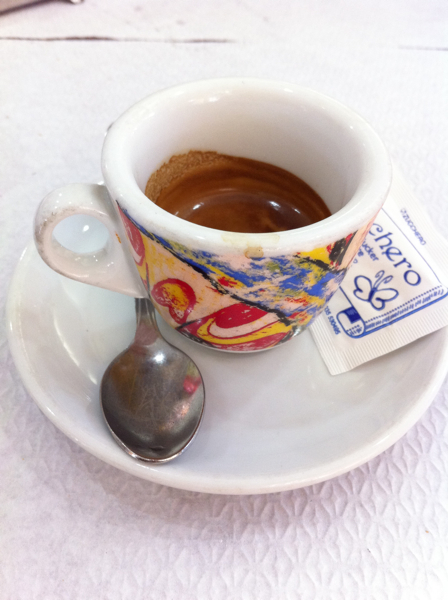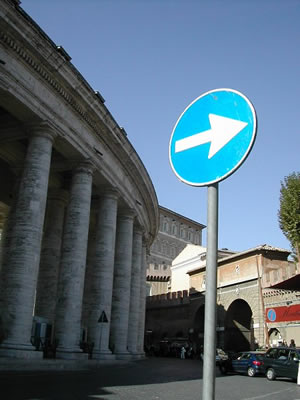So now the euro, as a currency we can use at the cash register, is three weeks old, and we’ve all had time to get used to it.
The changeover really hasn’t gone badly, even in famously disorganized Italy. There were long lines at highway tollbooths and banks the first week (the holiday peak travel season and a bank strike did not help). There were some long lines at stores, especially in smaller stores with older customers. The supermarkets seemed well-prepared, with cashiers already trained and special “euro informants” wandering around armed with calculators to assist the euro-confused. To avoid problems of conversion and change, many more transations were made with credit cards and ATM cards than had been the norm for Italy.
My only gripe so far is that the coins are not designed for optimum usability. Shopkeepers who know me commented: “You’re American, so all this cents stuff must be familiar to you.” The calculations, yes, but not the actual change. The euro has three denominations of copper coins (1 cent, 2 cents, and 5 cents), then there is a range of brass-colored coins (10, 20, 50), then 1-euro and 2-euro coins (silver with a brass rim and vice-versa).
The copper coins are too similar in size and appearance; we all spend a lot of time picking through coin purses and tills trying to make correct change. (Everyone assumes that the 1-cent and 2-cent coins will rapidly drop out of circulation. They apparently were created mostly for the changeover period, to stop merchants profiting too highly when recalculating prices and rounding.)
The smallest bill is 5 euros, which is irritating; the smallest lira bill was 1000 lire (roughly 50 cents in euros or dollars). Now we have to carry coins for these smaller denominations – and they’re heavy. When I go to the UK and have both euro and pound coins, I will have to carry my wallet in a backpack!
In spite of the wide availability of small coins, there have been many complaints about excessive price increases “excused” by conversion. Restaurants and coffee bars are particular culprits; in some cases the price of an espresso has gone up 20 or 30%.
Still, it’s fun having a new currency, and being part of this grand experiment. Supposedly we’ll see long-term benefits such as Europe-wide price alignment an all sorts of goods.
Now if only we could attain worldwide price alignment. I am heartily sick of things like software costing more in Europe than in the US. A few months ago I thought I might need an expensive tool for creating Windows online help files. The same software, purchase from the manufacturer’s site, cost several hundred dollars more if bought in Europe than if bought in the US. I wrote to their sales address to ask why. They replied that the English-language software was identical in Europe and the US, but gave no explanation as to why I should pay so much more to buy it in Europe. I asked again for clarification on this point. No reply. Guess whose software I didn’t buy?









